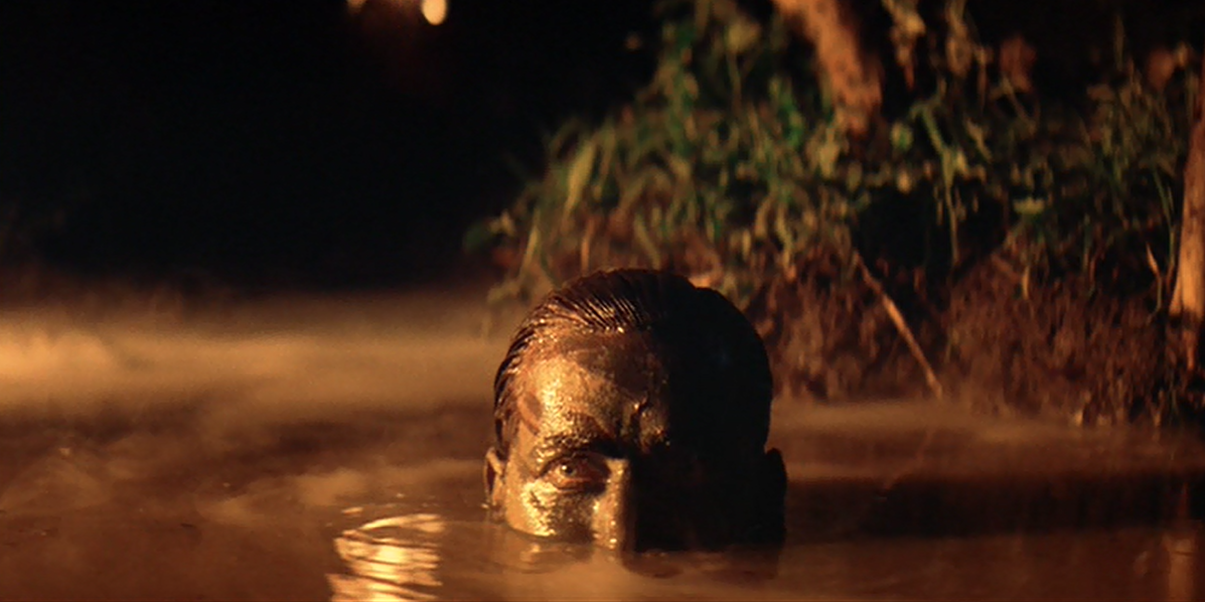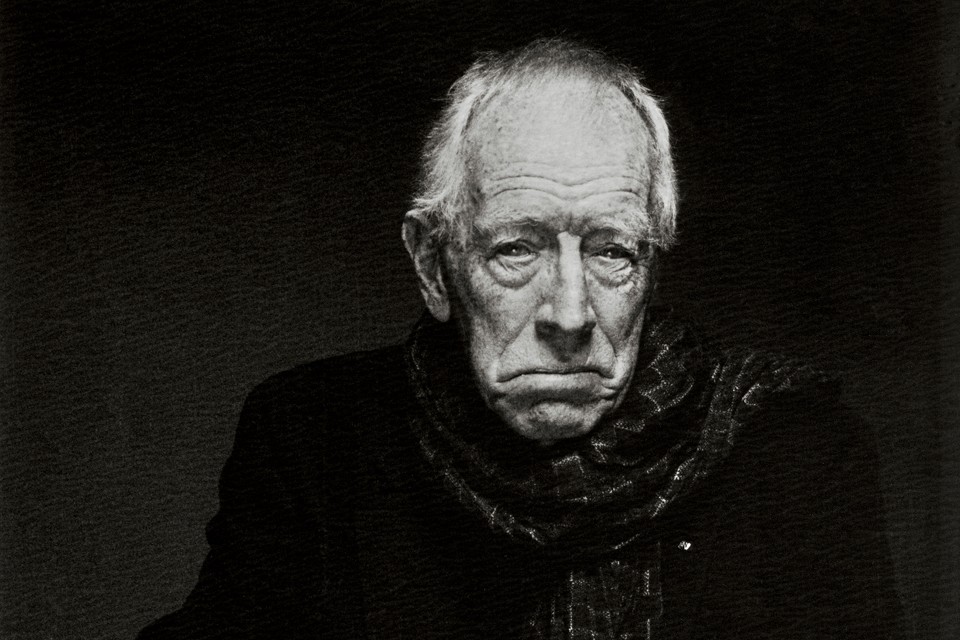1.
“The Greatest Actor Alive“: The Atlantic‘s Terrence Rafferty explores the career of Max Von Sydow.
“His role in ‘The Exorcist’ was in fact the closest he’s come to iconhood before now, and in many ways was a sort of preview of the current ‘And Max von Sydow’ stage of his career. Then in his mid-40s, he aged himself a good 30 years to play the hired-gun demon-fighter Father Merrin; he looks younger than that now. (With his craggy face and receding hairline, and a healthy lack of vanity, von Sydow has never had a problem playing older characters; he seems to relish the challenge.) The role isn’t large—Merrin’s on-screen for only a few minutes at the beginning and then, of course, during the noisy, nausea-inducing exorcism climax—but von Sydow’s quiet power makes the character seem huge, a spiritual force of sufficient size to take on Evil itself. His Merrin combines a gunslinger’s sangfroid and an old man’s terror. During the exorcism, you can feel the effort of will it takes for the old priest to muster his concentration and his strength. What von Sydow brings to ‘The Exorcist’ is more than the skimpily written part demands, maybe more than it deserves, but this is what he does in even the smallest, poorest roles. Like a novelist, he finds the human details that vivify the character.”
2.

“What I Discovered From Interviewing ISIS Fighters“: A provocative piece from The Nation‘s Lydia Wilson.
“Why did he do all these things? Many assume that these fighters are motivated by a belief in the Islamic State, a caliphate ruled by a caliph with the traditional title Emir al-Muminiin, ‘Commander of the faithful,’ a role currently held by Abu Bakr al-Baghdadi; that fighters all over the world are flocking to the area for a chance to fight for this dream. But this just doesn’t hold for the prisoners we are interviewing. They are woefully ignorant about Islam and have difficulty answering questions about Sharia law, militant jihad, and the caliphate. But a detailed, or even superficial, knowledge of Islam isn’t necessarily relevant to the ideal of fighting for an Islamic State, as we have seen from the Amazon order of Islam for Dummies by one British fighter bound for ISIS. In fact, Erin Saltman, senior counter-extremism researcher at the Institute for Strategic Dialogue, says that there is now less emphasis on knowledge of Islam in the recruitment phase. ‘We are seeing a movement away from strict religious ideological training as a requirement for recruitment,’ she told me. ‘If we were looking at foreign fighter recruits to Afghanistan 10 or 20 years ago, there was intensive religious and theological training attached to recruitment. Nowadays, we see that recruitment strategy has branched out to a much broader audience with many different pull factors.’”
3.

“Yes, There Are Christian Terrorists“: A vital report from The Daily Beast‘s Dean Obeidallah.
“‘There are still nine Christians here. We will capture them. We will kill them. When we finish here, we will go to the next village and kill the Christians there, too.’ If an ISIS leader made a statement like this publicly, Fox News would probably cut into their programming bring you a special report about the Muslims’ ‘religious war’ against Christians. Mainstream media outlets would most likely cover it as well. But that statement was indeed uttered in 2014. Except there was one simple word difference: ‘Christian’ was replaced with ‘Muslim.’ That is exactly what a Christian terrorist said about his militia’s plan to exterminate the remaining nine Muslims in a village in Central Africa Republic (CAR). But, of course, stuff like that doesn’t really make news here in our country. Or did you hear about the Christian militant who publicly beheaded a Muslim man in the streets of the CAR capital last year? That was actually covered by the U.S. media—in a short Associated Press paragraph buried in papers like the New York Times. Anyone doubt that if a Muslim terrorist beheaded a Christian man in the public square it would’ve made the U.S. news? Any cable news channels cover in depth the Christian marauders in CAR that are–as we speak–ethnically cleansing tens of thousnads of the minority Muslim population there? These Christian militants ‘stage brutal attacks…wielding machetes’ and have ‘burned and looted…houses and mosques.’ True, this is part of a civil war, but these violent acts are still carried out by militants who publicly self-identify as Christian fighters.”
4.

“Jim Hemphill (‘The Trouble with the Truth’) Talks Greg Berlanti’s DC Comics TV Shows“: Another terrific piece from the filmmaker and critic at The Talkhouse.
“Though I bow to no man in my love for Christopher Nolan’s ‘The Dark Knight’ and ‘The Dark Knight Rises,’ and find moments to admire and enjoy in some Marvel movies, more often than not I just find comic book films sluggish and oppressive – I don’t go into them with joy the way (I presume) most of the moviegoing public does. I go into something like ‘The Avengers: Age of Ultron’ with dread, like it’s homework; I have to see it to be part of the culture, but I don’t expect to actually enjoy or even completely understand it. Almost every time I go see a comic book movie on the big screen, I’m reminded of Pauline Kael’s description of Spielberg’s ‘1941’ as a movie that makes you feel like your head is stuck inside a giant pinball machine for two hours. Even when I like a comic book movie, like James Gunn’s ‘Guardians of the Galaxy,’ I inevitably get a sinking feeling in the final act, when the CGI orgy kicks in and suffocates whatever humor and spirit had engaged me in the early stages of the film. It doesn’t help that, to my eyes, the CGI always looks essentially the same, like the visual effects houses have templates they use and don’t want to deviate from – and the sheer scale of these productions so buries the films’ directors in departments and multiple units and logistics that they can never really wrestle what they’re shooting (or being given in post) into any kind of personal vision. (Again, Nolan is an exception to this rule, and I have no idea how he pulls it off.)”
5.

“Why is Othello black?“: A fascinating analysis from Slate‘s Isaac Butler.
“[Katie] Sisneros told me that to much of Shakespeare’s audience, ‘all Moors were Turks, even though not all Turks were Moors.’ Furthermore, while calling someone a Moor meant that they had dark skin, in the early 17th century, the term carried a religious meaning as well. ‘There was no word for Muslim at the time. They used Turk, Mosselman, Mohammedan, these are all synonyms.’ Othello, then, may have appeared at the time as an ex-Muslim—he mentions his baptism within the play—who slowly reverts to behavior that is more stereotypically ‘Muslim.’ The Tragedy of Othello, the Moor of Venice could be read as a nightmare about the impossibility of conversion and assimilation, meanings within the play that are less visible to us because we lack the original audience’s context. This is where piracy becomes important. If you were a British sailor working a trading ship at the time, you ran a real risk of being sacked by pirates, often Turks. If this happened, you were ransomed or, if no ransom was forthcoming, enslaved. Often, you would be offered your freedom if you converted to Islam, a process called turning Turk. To sweeten the deal, you could be promised land, a job, or even a wife. ‘If an English person is kidnapped, sold into slavery, converts for their freedom, returns to England—and this happened a lot—could they convert back?’ asked Sisneros. ‘And if so, how could that conversion be trusted? It’s an extremely troubling question at the time.’ Othello even uses this anxiety when breaking up a fight between his men, asking them, ‘Are we turned Turks? And to ourselves do that/ Which heaven hath forbid the Ottomites?’”
Image of the Day

“Apocalypse Now” editor Walter Murch chats with Variety‘s Damon Wise about “the change to digital.”
Video of the Day
The incomparable Gena Rowlands accepts her honorary Oscar at the 2015 Governors Awards.












